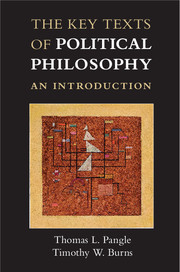4 - The Bible
Published online by Cambridge University Press: 05 October 2014
Summary
In turning from Athens to Jerusalem, we venture into a new realm. In a sense, we leave behind political philosophy, as it was originally founded by Socrates and carried on by his successors. We engage a writing that offers a radically alternative way of understanding and living human life. The Bible never refers to philosophy or to science, to “politics” or “the political.” The Hebrew Bible (or Old Testament) and the Christian Gospels never speak of “nature” in general or of “human nature” in particular – or of “natural law,” “natural right” or “natural rights,” or “human rights.” The Scriptures never refer to “democracy,” “oligarchy,” “republics” or republicanism, “statesmanship,” “citizenship,” “constitutions,” “regimes,” or “forms of government.” The Bible elaborates a comprehensive, normative account of the whole of human existence – of righteousness or justice, of law, of cities and nations or peoples, of rulers and ruled, of family, of love, of education, and, above all, of divinity – without reference to, or apparent need for, many of the seemingly essential terms, categories, and concepts by which classical political philosophy sought to clarify the enduring meaning for human existence in all times and place of what the philosophers observed around them in republican practice. Starting with Socrates, the political philosophers claim that their unassisted human reasoning about empirical evidence available in principle to everyone makes decisive progress in uncovering the deepest permanent needs and problems of human nature from which one may derive lasting standards of good and bad. The Bible, in contrast, presents itself as the revelation to all mankind, through select inspired prophets, of authoritative guidance that humbles and shows the limitations of all merely human understanding and experience. The God who speaks through the Bible is a transcendent God, who as the creator of heaven and earth is not limited by any necessities, as his very name – “I will be what I will be” (“Ehyeh-‘Asher-Ehyeh” – Exod. 3:14) – suggests. His only limits are those he imposes on himself by his unfailing promises or covenants that bespeak his adherence to and enforcement of justice: a justice that is intelligible to human critical thinking (Gen. 18:23–33; Deut. 32:4). He is known through the narration of his deeds and his commands.
- Type
- Chapter
- Information
- The Key Texts of Political PhilosophyAn Introduction, pp. 117 - 152Publisher: Cambridge University PressPrint publication year: 2014

